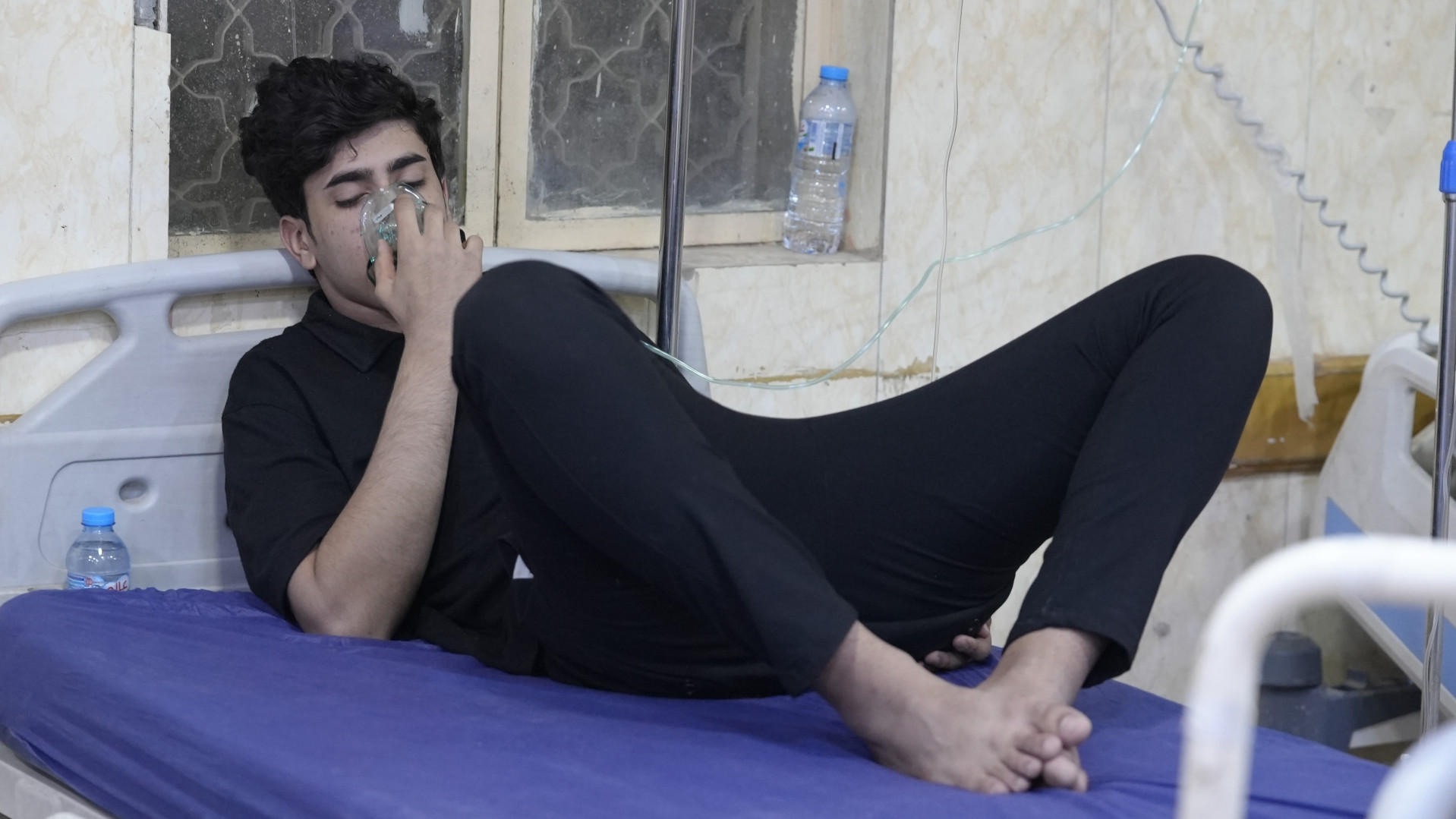Iraq: Thousands hospitalised as heavy sandstorm brings country to standstill

Leaning on his father's shoulder and walking slowly, 18-year-old Ali Mousa was at the Basra Teaching Hospital for treatment after his health condition deteriorated because of the sandstorm that hit Iraq on Monday.
Ali was not able to speak to Middle East Eye due to his breathing problem. His father, Mousa, explained the son's case.
"My son works in a restaurant. When he came back home at 3:30 pm, he told me that he could not breathe, eat or drink properly.
"I drove my car straight to the hospital and we entered the emergency department to check his condition, and the doctor told us that Ali should be admitted to the emergency room to get an oxygen mask as he suffered from breathing difficulty due to the dust storm," the father said.
Stay informed with MEE's newsletters
Sign up to get the latest alerts, insights and analysis, starting with Turkey Unpacked
At least 4,000 people have been hospitalised with respiratory problems since Monday morning, and the storm has forced the closure of public administration buildings, schools, airports and businesses.
The storm is the eighth since mid-April to hit the country, already battered by climate change.
Experts have attributed frequent intense sandstorms to factors including low rainfall, desertification, losing the green belt across the country, and climate change.
The last sandstorm earlier this month resulted in the death of at least one person, and 5,000 others had to be hospitalised with breathing problems.
In Basra, Iraq's second-largest city, sandstorms led to the hospitalisation of 1136 people who manifested severe respiratory problems until Tuesday morning, the spokesperson of the health directorate in the city, Khaled Salama, told MEE.
The storm has also reduced visibility for drivers, causing a spike in car accidents and slowing traffic significantly between Basra and other neighbouring cities.
In response to the sandstorm, Basra Governor Asaad al-Eidani announced a day off across all the city's public administration.
'AC pumping dust'
The head of the Basra Teaching Hospital, Mohammed Rifaat, told MEE that the medicine they have at the moment is enough to cover their needs.
"We have a good amount of medicine in our urgent pharmacies. I think it is enough to cover all patients who are suffering from respiratory difficulties today and in the next few days."
Rifaat added that his hospital received about 50 patients on Monday only.
"What made us ready for this sandstorm is that Basra is situated at the bottom of Iraq, so it takes a long time for the sandstorm to arrive. That's why we are lucky to have a bit of time for the hospital to be prepared for people affected by the storm," he added.
Adel Abbas, 50, is a Basra resident who went to hospital after being hit by the sandstorms for the sixth time in weeks.
Abbas also could not speak easily while wearing a mask, so he spoke using sign language, and his little brother, Fadhel, helped him with translation.
"Monday morning, I was fixing my car just in front of my house. I do not remember what happened to me but immediately I felt bad and unable to breathe. I asked my brother to quickly drive me to the hospital. I literally was about to die but thank God I still can breathe," he told MEE.
Another patient, 43-year-old Khayon Nasser, ended up in hospital for emergency treatment. Walking through hospital corridors and coughing with a towel over his nose, he said he felt suffocated at 3pm when the red dust covered the entire city's sky.
"I always get ill whenever the sandstorm hits, but today [Monday] the storm was unexpected and very strong. Before coming to the hospital, my family turned on the air conditioner to breathe fresh air but the AC was pumping dust."
Middle East Eye delivers independent and unrivalled coverage and analysis of the Middle East, North Africa and beyond. To learn more about republishing this content and the associated fees, please fill out this form. More about MEE can be found here.






